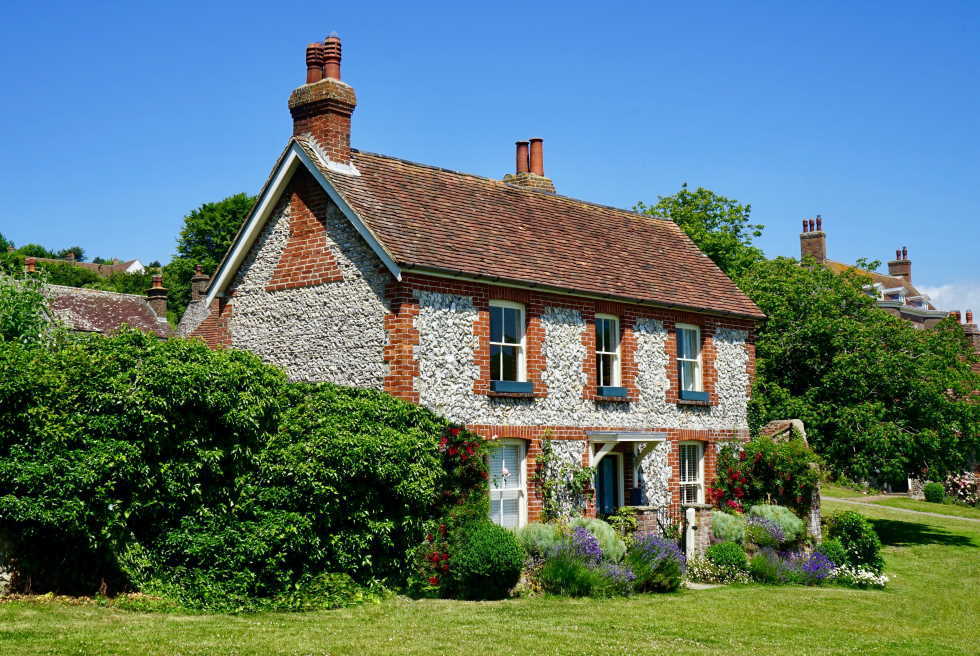A freeze of the IHT nil rate band thresholds for paying the tax until 2026, coupled with soaring house prices, is drawing unsuspecting estates into the realm of Inheritance Tax (IHT).
According to the Office for National Statistics (ONS), the average price of a home in the England in May 2022 has rocketed to £302,000, just £23,000 below the initial Nil-Rate band. In high-value areas, such as the South East and London, this figure is even higher. This means that more and more taxpayers, not just the wealthiest members of society, are facing IHT bills on their estates after death.
An interesting analysis of inheritance tax receipts by investment experts at Wealth Club showed one in 25 estates now pay the tax, and with the thresholds frozen, more will soon fall into the net. They found that IHT receipts increased by £300m in the second quarter to £1.8bn and they estimate that the average IHT bill could rise to just over £266,000 this tax year, a 27% increase from an average of £209,000 paid only three years ago.
So here’s what you need to know about IHT…
What is IHT?
Inheritance Tax is a tax on the estate (the property, money and possessions) of someone who’s died.
There is normally no Inheritance Tax to pay if:
- The value of your estate is below the £325,000 threshold
- You leave everything above the £325,000 threshold to your spouse, civil partner, a charity or a community amateur sports club
- If you give away your home to your children (including adopted, foster or stepchildren) or grandchildren and your estate is valued at £2m or less, you can also benefit from the Residence Nil Rate Band, which adds an additional allowance of £175,000, increasing your threshold to £500,000
- If you are married or in a civil partnership and your estate is worth less than your threshold, any unused threshold can be added to your partner’s threshold when you die. This means their threshold can be as much as £1 million!
How much do you have to pay?
The standard IHT rate is 40%. However, this is only charged on the part of your estate that is above the threshold.
So, if your estate is worth £600,000 and your tax-free threshold is £500,000. The Inheritance Tax charged will be 40% of £100,000, being £40,000.
The estate can pay IHT at a reduced rate of 36% on some assets if you leave 10% or more of the ‘net value’ to charity in your Will.
Are there any ways to save on IHT?
Here are some of the ways that you can cut your IHT bill with careful planning:
Gifting
There’s usually no IHT to pay on regular gifts you make out of your normal income, such as Christmas or birthday presents, which are commonly referred to as ‘exempted gifts’.
There is also no IHT to pay on gifts between spouses or civil partners and you can transfer as you like during your lifetime, as long as they live in the UK permanently.
You can give away up to £3,000 worth of gifts each tax year without them being added to the value of your estate thanks to the ‘annual exemption’.
If you have any unused annual exemption, you can carry it forward to the next year – but only for one year.
Each tax year, you can also give away additional gifts if they relate to special events such as weddings, birthdays or Christmas, or if they support the living costs of another person, such as an elderly relative or a child under 18.
You can give as many gifts of up to £250 per person as you want during the tax year as long as you have not used another exemption on the same person.
However, other gifts count towards the value of your estate, and you could be charged IHT if you give away more than £325,000 in the seven years before your death.
Gifts include anything that has value, or anything transferred at a loss to a family member, such as the sale of a home to a descendant for less than it is worth.
If there is IHT to pay, it’s charged at 40% on gifts given in the three years before you die. Gifts made three to seven years before your death are taxed on a sliding scale known as ‘taper relief’. After seven years the gift will be IHT-free.
Business Property Relief or Agricultural Property Relief
Certain assets receive relief from IHT, these include Business Property, Agricultural Property and Heritage Assets.
These reliefs can reduce or eliminate the value of an asset being included within an estate, but they often rely on certain conditions being met.
Not every interest in a business will qualify for these specialist reliefs so it is worth seeking advice when managing your estate.
Charity
Anything left to charity in your Will won’t count towards the total taxable value of your estate. Known as a ‘charitable legacy’, this will also reduce the IHT rate on the rest of your estate from 40% to 36%, as long as you leave at least 10% to charity.
Trusts
Trusts can play a role in reducing a family’s exposure to IHT so that more can be passed on to future generations. Furthermore they provide control and protection over the family assets. A trust could be the ideal vehicle if you have family who are too young or vulnerable to deal with financial matters or you wish to provide for future generations.
A trust is a legal arrangement where you gift cash, property or investments to a separate entity (the trust). One who gifts assets is the Settlor, the trustees then oversee the management of the assets for the benefit of a third party or parties.
One of the main benefits of a trust is that, should you elect to act as the trustee, you would continue to maintain control over the assets gifted whilst your estate’s exposure to IHT is reduced as, after seven years, the gift is out of the Settlor’s estate completely.
Assets transferred into a trust are no longer considered as belonging to the Settlor, so they are taxed according to the rules governing the trustee.
If you would like to discuss your IHT position, please get in touch with Kate Thorburn, Private Client Tax Manager, on 01242 776000 or kate.thorburn@randall-payne.co.uk.



